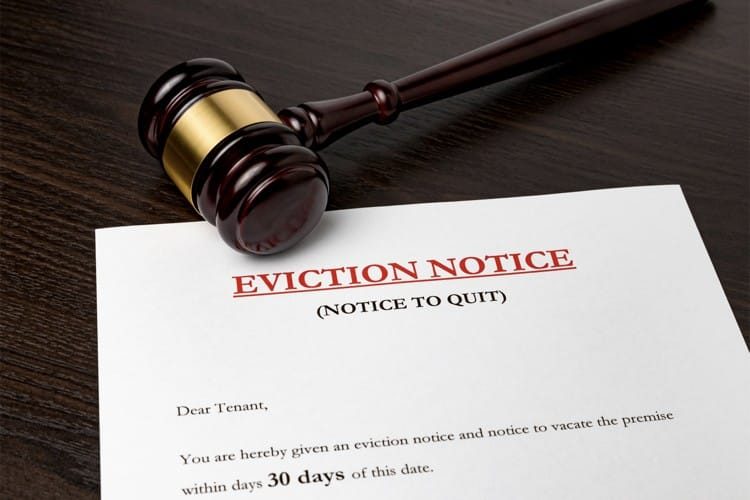
A consortium of real-estate organizations has petitioned the Supreme Court to lift a stay on a lower court’s judgment that the federal government’s eviction moratorium is illegal, claiming that the moratorium is costing landlords over $13 billion a month.
Led by the Alabama Association of Realtors, the plaintiffs maintain that the eviction moratorium ignores clear statutory language, that the government’s arguments for staying the ruling are without merit, and that there is no longer any public-health rationale for retaining the moratorium.
Congress first imposed a nationwide ban on apartment evictions — limited to properties getting federal funding — under the CARES Act, which passed in March 2020.
After that moratorium expired, the Centers for Disease Control and Prevention (CDC) issued its own moratorium applying to all residential properties in the country and imposing severe criminal penalties on landlords found to be violating it. Congress, then President Joe Biden, and then the CDC successively extended the moratorium until June 30.
The plaintiffs filed suit last fall. In May, the U.S. District Court for the District of Columbia vacated the moratorium as having overstepped the CDC’s statutory authority.
The government based its case on Section 264 of the Public Service Health Act of 1944 — a provision it admitted had hardly ever been invoked, let alone used to ban evictions — which says that the Secretary of Health and Human Services (who has since delegated this authority to the CDC) may “make and enforce such regulations as in his judgment are necessary to prevent the introduction, transmission, or spread of communicable diseases” across state lines. Since, in the CDC’s determination, evicting people during the COVID-19 pandemic might force them to move into close quarters, thereby spreading the disease, the agency was justified in banning evictions nationwide, especially since so many people were thrown out of work by government decrees.
The court rejected this argument for reasons described by the plaintiffs:
As the court explained, construing [Section 264] to “extend[] a nearly unlimited grant of legislative power” to the Secretary would not only “ignore its text and structure,” but would also “raise serious constitutional concerns,” including the legality of “‘such a broad delegation of power unbounded by clear limits or principles.’”… In addition, the court observed, accepting the government’s “expansive interpretation” would require embracing the implausible assumption that Congress “delegated to the Secretary the authority to resolve not only” the momentous decision to criminalize evictions nationwide, but “endless others that are also subject to ‘earnest and profound debate across the country.’” … Because “Congress did not express a clear intent” to confer “such sweeping authority,” the court declined to take that step itself.
Despite this, the court agreed to the government’s motion for a stay of its ruling not because it thought the government would win its case but because the case raised “a serious legal question” and involved matters of public health.
The D.C. Circuit Court of Appeals upheld the stay, even going so far as to suggest that the government might succeed after all.
The realtors want the Supreme Court to overturn the stay while the case proceeds through the appeals process. They argue that besides the threat of criminal penalties hanging over landlords’ heads and the manifest financial hardship it is causing them, the court must consider the matter because ”the CDC’s sweeping view of its own domain would, if left unchecked, allow it to adopt future regulations governing nearly all aspects of national life in the name of public health — whether it be vaccine mandates, worship limits, school and business closures, or stay-at-home orders.”
Moreover, they note that the CDC’s rationale for imposing the moratorium clearly is “unsustainable” in light of a vastly improved COVID-19 situation. And, they add, “the CDC’s moratorium remains inexplicably underinclusive” since it does not cover people who are unable to make mortgage, hotel, or seasonal house payments. “The agency’s efforts here,” they observe, “are more about housing policy than public health.”
“The government may wish to prolong the moratorium to see out its economic-policy goals, but that does not render its stated justification plausible,” they write. “Forcing landlords to provide free housing for vaccinated Americans may be good politics, but it cannot be called health policy.”



